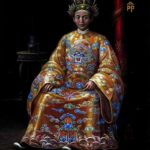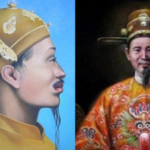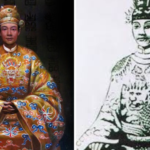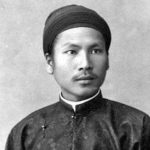Since the reign of King Minh Mang, the succeeding kings of the Nguyen dynasty did not establish their queens as the Empress while in power, with the exception of Queen Nam Phuong during the reign of King Bao Dai. Is this the king’s personal decision or a principle that must be followed?
Why didn’t the kings of the Nguyen dynasty establish an Empress?
During the 143-year existence of the Nguyen dynasty, under the rule of 13 kings, there were only two queens, namely Queen Thua Thien Cao and Queen Nam Phuong during the reign of King Bao Dai. This means that starting from the reign of King Minh Mang (the second king of the Nguyen dynasty), the succeeding kings did not establish an Empress while in power. The wives of the kings were only given the title of concubines, consorts, and the highest position being Queen consort.
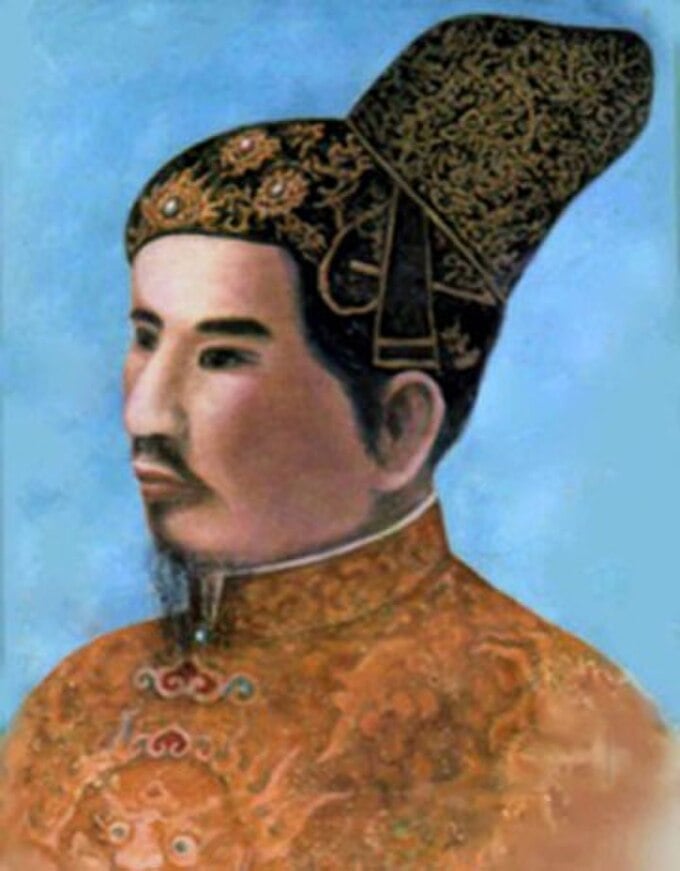
Portrait of King Gia Long
Some historians believe that Gia Long, the first king of the Nguyen dynasty, did not want to share power with anyone, or feared that outsiders would overshadow his power, so he established the “Tu Bat Lap” rule, which means no Empress, no Prime minister, no Trang nguyen, and no Vương. However, until now, no document has been found that specifies this rule.
On the other hand, King Gia Long bestowed the title of Empress on Lady Tong Thi Lan (also known as Thua Thien Cao Empress), the mother of Prince Canh and Prince Chieu while he was still in power. The Dai Nam Thuc Luc book states that in the year Binh Dan (1806), in the autumn season, in the 7th month, on Kỷ Mùi day, the king established the queen Tong Thi Lan as the Empress… On Quy Hoi day, the king resided at Thai Hoa palace, received congratulations, and made public announcements…
Therefore, Tong Thi Lan was crowned as Empress only 2 months after King Gia Long’s ascension to the throne (the king ascended the throne on Kỷ Mùi day, the 5th month, Binh Dan year). Therefore, it cannot be concluded that King Gia Long established the rule of not having an Empress as some theories suggest.
In fact, King Minh Mang had many concubines but did not establish anyone as Empress. In his explanation, the king stated: “…the position of the master in the palace (referring to the first wife – the Empress) is left vacant to await the virtuous.” The position of Empress remained vacant to “await the virtuous,” but until the end of King Minh Mang’s reign, no one was found to be virtuous enough to fill this position.
The “Quoc Su Di Bien” book by Historian Phan Thuc Truc recorded the reason why the king could not find a suitable Empress: Lady Kieu, the daughter of a business official, did not have any offspring, and Lady Hinh, the second lady, was the daughter of King Le Tong Chat. Once, the king was feeling a bit upset, the queen and the second lady went to the Thien Mac Pagoda together. The second lady said: “If we offend the heavens, where can we seek forgiveness?” When the king returned, the queen told him about the conversation. The king was very angry! Therefore, the throne of Empress remained vacant and could not be determined.
Therefore, King Minh Mang did not establish an Empress because he could not find a suitable person, rather than establishing a rule of not having an Empress, nor did he pass on any restrictions for the succeeding generations to not establish an Empress.
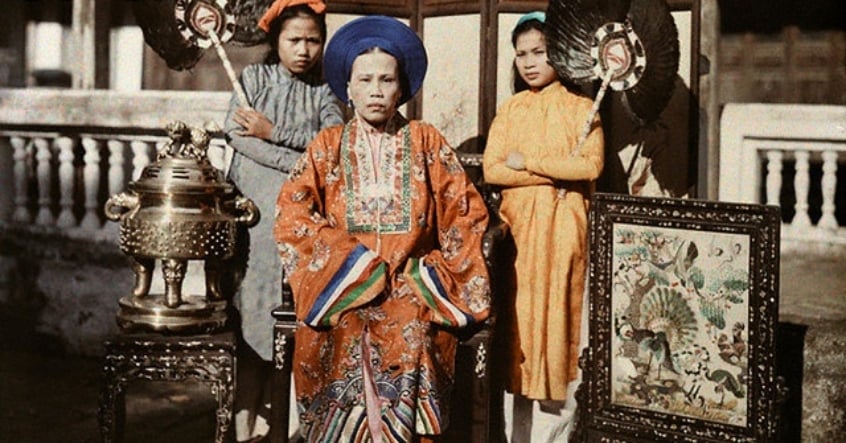
The imperial harem of the Nguyen dynasty. Image source: Internet
In the reign of Thieu Tri, who ruled for 7 years, he followed the same principle as his father, that an Empress should only be established if there was a suitable person. However, he did not have time to establish Queen Phi Pham Thi Hang as the Empress. The “Dai Nam Liet Truyen” book recorded: “As the king was nearing death, all future matters were entrusted to the queen. He also ordered the officials to inform them that Queen Phi is the first wife (queen consort) of him, a virtuous and noble person, who has assisted him in the imperial harem for 7 years. Now, his intention was to establish her as the main Empress in the palace, but unfortunately, he couldn’t accomplish it in time.”
King Minh Mang and Thieu Tri did not establish an Empress, and the kings that followed also did not establish an Empress, because they were not sure if these concubines had higher virtue to deserve the title of Empress or not. Lady Ho Thi Chi, who was considered a legitimate wife of King Khai Dinh, was only given the title of Phi (Second-class consort).
The last Empress of Vietnam
In the reign of Bao Dai, the last emperor (1926 – 1945) ascended to the throne in the year At Suu (1426), and in the year Giap Tuat (1934), he married Nguyen Huu Thi Lan and immediately bestowed upon her the title of Empress Nam Phuong. This act clearly did not violate the regulations of the court.
Some opinions suggest that the succeeding kings did not establish an Empress because they did not dare to break the tradition set by King Minh Mang. According to the author Le Nguyen in the book “Nha Nguyen va nhung van de lich su”: “The kings Minh Mang, Thieu Tri, Tu Duc, and the succeeding kings did not announce the establishment of an Empress because there was no precedent for it, simply because they had not found a deserving person to fill this position, or the time had not come yet. A descendant of those kings, King Bao Dai still officially crowned Nam Phuong as the Empress without breaking any rules.”

























